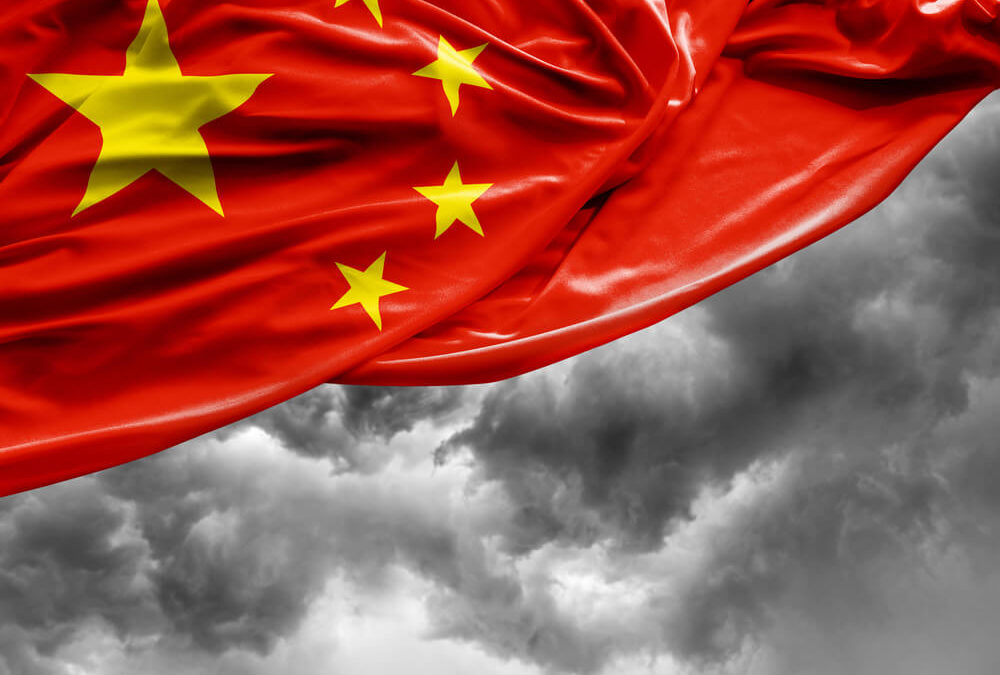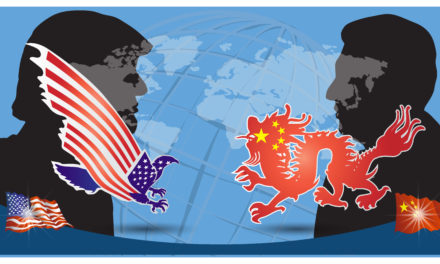There is now overwhelming evidence supporting President Trump’s claim that China is coercing foreign companies to hand over technology, or be barred from the Chinese market.
According to a recent article in the “Wall Street Journal,” the White House estimates China inflicts $50 billion in yearly damages to U.S. companies, weakening American businesses’ competitiveness and undermining incentives to innovate.
Trump’s plan to stop China from pilfering U.S. tech is simple: tariffs, tariffs and more tariffs, even threatening to levy tariffs on $517 billion worth of Chinese imports — which is effectively everything the country exports to the U.S.
Per the WSJ:
Interviews with dozens of corporate and government officials on both sides of the Pacific, and a review of regulatory and other documents, reveal how systemic and methodical Beijing’s extraction of technology has become — and how unfair Chinese officials consider the complaints.
China’s tactics, these interviews and documents show, include pressuring U.S. partners in joint ventures to relinquish technology, using local courts to invalidate American firms’ patents and licensing arrangements, dispatching antitrust and other investigators, and filling regulatory panels with experts who may pass trade secrets to Chinese competitors.
China defended its tactics via a paper released Monday by its State Council, stating U.S. companies “have received huge returns through tech transfer and licensing, and are the biggest beneficiaries of technical cooperation.”
“China’s offer to the world has been straightforward. Foreign companies are allowed to access China’s markets but they would need to contribute something in return: their technology.”
Here’s a brief list of companies that have ran into issues in China:
DuPont Co.
DuPont Co. suspected its onetime partner in China was getting hold of its prized chemical technology, and spent more than a year fighting in arbitration trying to make it stop.
Then, 20 investigators from China’s antitrust authority showed up.
For four days this past December, they fanned out through DuPont’s Shanghai offices, demanding passwords to the company’s world-wide research network, say people briefed on the raid. Investigators printed documents, seized computers and intimidated employees, accompanying some to the bathroom.
Huntsman Corp.
Huntsman is battling over a crown jewel of its business, a black dye used in textiles that is less polluting to make. It filed a lawsuit in Shanghai against a Chinese company for infringing a patent on the dye in 2007. Huntsman then found a court-appointed review panel stacked against it, it said in a 2011 complaint it filed with the U.S. Commerce Department.
The three-panel members included an engineer from the company Huntsman was suing, another from a local dye-research group and a third who once worked at a local dye firm, according to the complaint and people with knowledge of the matter. The experts’ work “effectively turned them into allies and ‘spokespersons’ ” for the Chinese competitor, the complaint said.
Litigation of the patent-infringement case has dragged on. Huntsman has asked the Trump administration to consider blocking Chinese firms if they set up operations in the U.S. using disputed Huntsman technology.
Micron Technology Inc.
During August trade talks, U.S. negotiators pressed Beijing about coerced technology transfer. They cited memory-chip maker Micron Technology Inc., which filed a lawsuit in U.S. District Court in California in December alleging technology theft by Fujian Jinhua Integrated Circuit Co. Jinhua sued Micron in January in a court in Fujian province — whose government partly controls Jinhua — and won a temporary order blocking some Micron subsidiaries from selling products in China that each company claims patents to.
Jinhua declined to comment. In a July statement, it said Micron has “recklessly” infringed on its patents. Micron says it intends “to vigorously protect our intellectual property and business interests through all available means.”
Chinese negotiator Commerce Vice Minister Wang Shouwen dismissed the concerns in August trade talks, say officials familiar with the talks. Micron and Jinhua “are like brothers,” Mr. Wang said, according to the officials, “and brothers fight.”
Foreign Automakers
For foreign automakers, the review panels have become a battleground over electric-vehicle technology. New vehicles must get government approval before mass production, undergoing a mandatory technology audit that usually lasts several days, foreign makers say.
An audit this year convinced an employee at one foreign auto maker there was “clear evidence of collusion” between the audit team and Chinese auto makers. When the audit began, the person says, inspectors asked for only the blueprints of the electric-vehicle components the foreign company was striving to protect from its Chinese joint-venture partner.“Somehow they knew exactly the areas to look at,” the person says. “There wasn’t a single question about any of the other very complex systems on the vehicle.”




